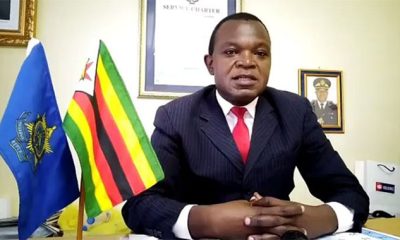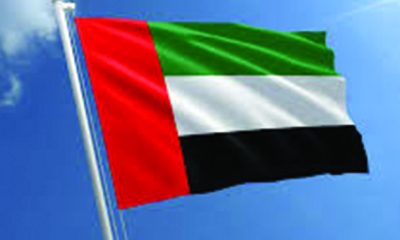The odds are stacked against Zimbabwe’s latest attempts to reinvent its currency in a year where it is facing a devastating drought while drowning in foreign debt and enduring two decades of international isolation.
A few days after announcing that it will require $2 billion to feed a sizable part of its population due to a severe drought, on April 4, Zimbabwe announced that it was relaunching its currency for the third time in a decade following bouts of hyperinflation.
Zimbabwe is one of three Southern African countries, including Malawi and Zambia that have declared a state of disaster as result of the drought caused by El Nino, a naturally occurring climate that resulted in much lower rainfall and higher temperatures.
Harare’s humanitarian crisis where 2.7 million people are already facing starvation is worsened by a long running economic crisis characterised by frequent currency collapses and hyperinflation.
Read: Zimbabwe declares drought a national disaster
Authorities say the latest reinvention of the latest currency will provide relief to citizens, who are increasingly struggling to put food on the table.
The Zimbabwe Gold (ZiG), which replaced the Real Time Gross Settlement (RTGS) dollar, started trading this week with an initial rate of 13.56 to $1.
It has not been a smooth changeover as financial institutions are struggling to transition to the new currency with banks and other online platforms suspending transactions for nearly a week as they configure their systems to use the ZiG.
The Reserve Bank of Zimbabwe (RBZ) said new banknotes and coins will only enter circulation at the end of April. Supermarkets and informal markets were only trading in US dollars this week as businesses and consumers tried to adjust to yet another currency switch in the southern African country.
Before the announcement that the RTGS dollar, which only came into circulation in 2019, was being abandoned after losing 80 percent of its value this year, the currency was already being rejected by most businesses.
Read: Zimbabwe launches gold coins to cushion economy
The RTGS struggled to gain trust among Zimbabweans that have borne the brunt of hyperinflation since early 2000s when Western countries imposed sanctions against the regime of the late Robert Mugabe for alleged human rights violations.
Its calamitous collapse raised fears of a return of the 2007 to 2009 inflation era where citizens lost their entire savings and the country was forced to abandon its currency for a decade.
The Zimbabwe Coalition on Debt and Development said the timing of the introduction of a new currency could not have been worse in the midst of a devastating drought and economic turmoil.
According to latest statistics, Zimbabwe’s god production increased by 25 percent in January to 2 373 kilogrammes, but there are lingering worries that most of the precious mineral is not traded in formal markets as it is smuggled outside the country.
Zimbabwe’s $17.7 billion debt overhang might prove to be another major obstacle for the new currency as it keeps away investors that are critical for economic revival, analysts said.
“With an adverse economic outlook, for instance, subdued global mineral commodity prices threatening the value of export receipts coupled with the El-Nino-induced drought that has affected the 2023/24 summer cropping season, there will be enormous spending pressure on the Treasury to cushion the vulnerable groups and the economy in general,” Zimcodd said.
“Just like it is the norm globally, the Treasury will need help from the RBZ (money printing) to meet the demand of the pending humanitarian and economic crisis.
“The increase in ZiG money supply will only be permissible if there are enough gold reserves; hence, there is a need for a whole-of-government approach to curb illicit gold trading.
“Otherwise, the expected increase in the import bill will render the ZiG worthless in no time.”
Read: Zimbabwe’s new gold-backed currency starts trading
The monetary authorities say since the new currency is backed by gold, which is found in abundance in the country, the ZiG would be more stable than its predecessors.
Last year, an Al Jazeera investigation showed how people claiming to have connections to President Emmerson Mnangagwa and his family were smuggling gold worth millions of dollars to Dubai.
President Mnangagwa’s government says the country is losing gold worth $100 million a month due to the rampant smuggling that is mainly driven by politically exposed people.
Zimccodd said there was a need to provide strong guard rails against gold leakages from the RBZ vaults, which can be caused by theft and fraud by unscrupulous public officials.
“More so, there is a need to set up public trust and investor confidence-building measures,” it added.
“These include, among others, massively reducing leakages of public resources by curbing public corruption, maintaining policy consistency, adopting a participatory approach to economic governance, and garnering adequate political will to swiftly implement a robust reform agenda.”
Tendai Biti, who was Zimbabwe’s Finance minister during dollarisation, Zimbabwe’s currency problems stemmed from lack of production and indiscipline.
“You can change currencies a million times as they have done, but it will not deal with inflation,” Mr Biti said.
“Inflation is a by-product of the fact that too much money is chasing too few goods and we in Zimbabwe generate too much money through a government that prints money and cannot live within its means, a government that spends money as if it grows on trees.
“If we go into a supermarket, 80 percent of the things that we eat are imported and that requires US dollars, but we do not have the US dollars because we are not producing.
“The economy is shrinking. In the last 10 years the average growth rate has been 1.5 percent and that means the economy can’t grow and if it can’t grow it suffers.”
Read: IMF: Zimbabwe should speed up currency reforms
ActionAid, a global federation, said the new currency might prove to be a temporary solution as Zimbabwe’s problems were deep rooted.
“For years, Zimbabwe has grappled with the consequences of currency instability. We have witnessed the introduction of various currencies, each accompanied by promises of economic recovery,” Action Aid Zimbabwe said.
“However, the reality on the ground has often fallen short of these promises, leaving Zimbabweans vulnerable to economic uncertainty and hardship.
“Instead of addressing the root causes of our economic challenges, it offers a temporary fix that fails to inspire confidence among Zimbabweans.”
The country acquired most of the debt from China as it is ineligible to access loans from multilateral creditors such as the World Bank and International Monetary Fund after defaulting on repayments since the turn of the millennium.
Debt restructuring talks fronted by former Mozambique president Joachim Chissano and African Development Bank president Akinwumi Adesina have not yielded much due to Western countries’ frustration with President Mnangagwa’s reluctance to introduce political and economic reforms.
The United States, which has maintained sanctions against Zimbabwe since 2003, last month said it was withdrawing its support for the country’s debt restructuring talks because of concerns about governance issues.
Mr Biti said given the many challenges faced by the Zimbabwean economy, it was unlikely that the new currency will hold its own in a market that was virtually dollarised and with a population that has been scarred by many failures.
“People have no belief and confidence in this currency. They have no belief and confidence in anything that (the ruling) Zanu PF and President Mnangagwa do,” he added.
“So a currency is backed 60 percent by political confidence or the social contract, not gold.
“The world moved from gold –backed currencies in the 70s because we did not have enough gold.
“No country has enough gold to back its currency, including the United States of America or China. But currencies are backed on trust and confidence in the government.”

 Business5 months ago
Business5 months ago
 music2 weeks ago
music2 weeks ago
 travel3 weeks ago
travel3 weeks ago
 money markets2 weeks ago
money markets2 weeks ago
 gospel2 weeks ago
gospel2 weeks ago
 gospel2 weeks ago
gospel2 weeks ago
 gospel2 weeks ago
gospel2 weeks ago







You must be logged in to post a comment Login